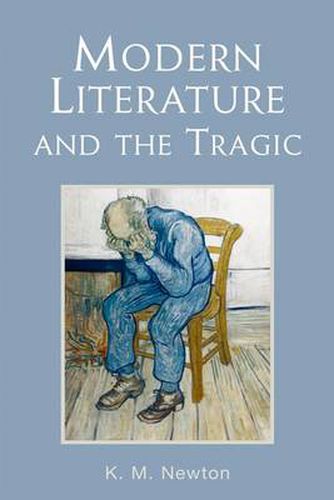Readings Newsletter
Become a Readings Member to make your shopping experience even easier.
Sign in or sign up for free!
You’re not far away from qualifying for FREE standard shipping within Australia
You’ve qualified for FREE standard shipping within Australia
The cart is loading…






This book explores modern literature’s responses to the tragic. It examines writers from the latter half of the nineteenth century through to the later twentieth century who respond to ideas about tragedy. Although Ibsen has been accused of being responsible for the ‘death of tragedy’, Ken Newton argues that Ibsen instead generates an anti-tragic perspective that had a major influence on dramatists such as Shaw and Brecht. By contrast, writers such as Hardy and Conrad, influenced by Schopenhauerean pessimism and Darwinism, attempt to modernise the concept of the tragic. Nietzsche’s revisionist interpretation of the tragic influenced writers who either take pessimism or the ‘Dionysian’ commitment to life to an extreme, as in Strindberg and D. H. Lawrence. Different views emerge in the period following the second world war with the ‘Theatre of the Absurd’ and postmodern anti-foundationalism.Key Features *Broad coverage of drama and fiction by British, European, and American writers *Provides readings of particular texts including Tolstoy’s Anna Karenina, Ibsen’s Ghosts, Strindberg’s Miss Julie, Brecht’s Mother Courage, Chekhov’s Three Sisters, Thomas Hardy’s Tess of the d'Urbervilles and Jude the Obscure, Shaw’s Saint Joan, Miller’s Death of a Salesman, Conrad’s Heart of Darkness, and D H Lawrence’s The Rainbow and Women in Love *Combines literary interpretation with philosophical discussion, e. g. of Schopenhauer, Nietzsche, Derrida, Rorty
$9.00 standard shipping within Australia
FREE standard shipping within Australia for orders over $100.00
Express & International shipping calculated at checkout
This book explores modern literature’s responses to the tragic. It examines writers from the latter half of the nineteenth century through to the later twentieth century who respond to ideas about tragedy. Although Ibsen has been accused of being responsible for the ‘death of tragedy’, Ken Newton argues that Ibsen instead generates an anti-tragic perspective that had a major influence on dramatists such as Shaw and Brecht. By contrast, writers such as Hardy and Conrad, influenced by Schopenhauerean pessimism and Darwinism, attempt to modernise the concept of the tragic. Nietzsche’s revisionist interpretation of the tragic influenced writers who either take pessimism or the ‘Dionysian’ commitment to life to an extreme, as in Strindberg and D. H. Lawrence. Different views emerge in the period following the second world war with the ‘Theatre of the Absurd’ and postmodern anti-foundationalism.Key Features *Broad coverage of drama and fiction by British, European, and American writers *Provides readings of particular texts including Tolstoy’s Anna Karenina, Ibsen’s Ghosts, Strindberg’s Miss Julie, Brecht’s Mother Courage, Chekhov’s Three Sisters, Thomas Hardy’s Tess of the d'Urbervilles and Jude the Obscure, Shaw’s Saint Joan, Miller’s Death of a Salesman, Conrad’s Heart of Darkness, and D H Lawrence’s The Rainbow and Women in Love *Combines literary interpretation with philosophical discussion, e. g. of Schopenhauer, Nietzsche, Derrida, Rorty